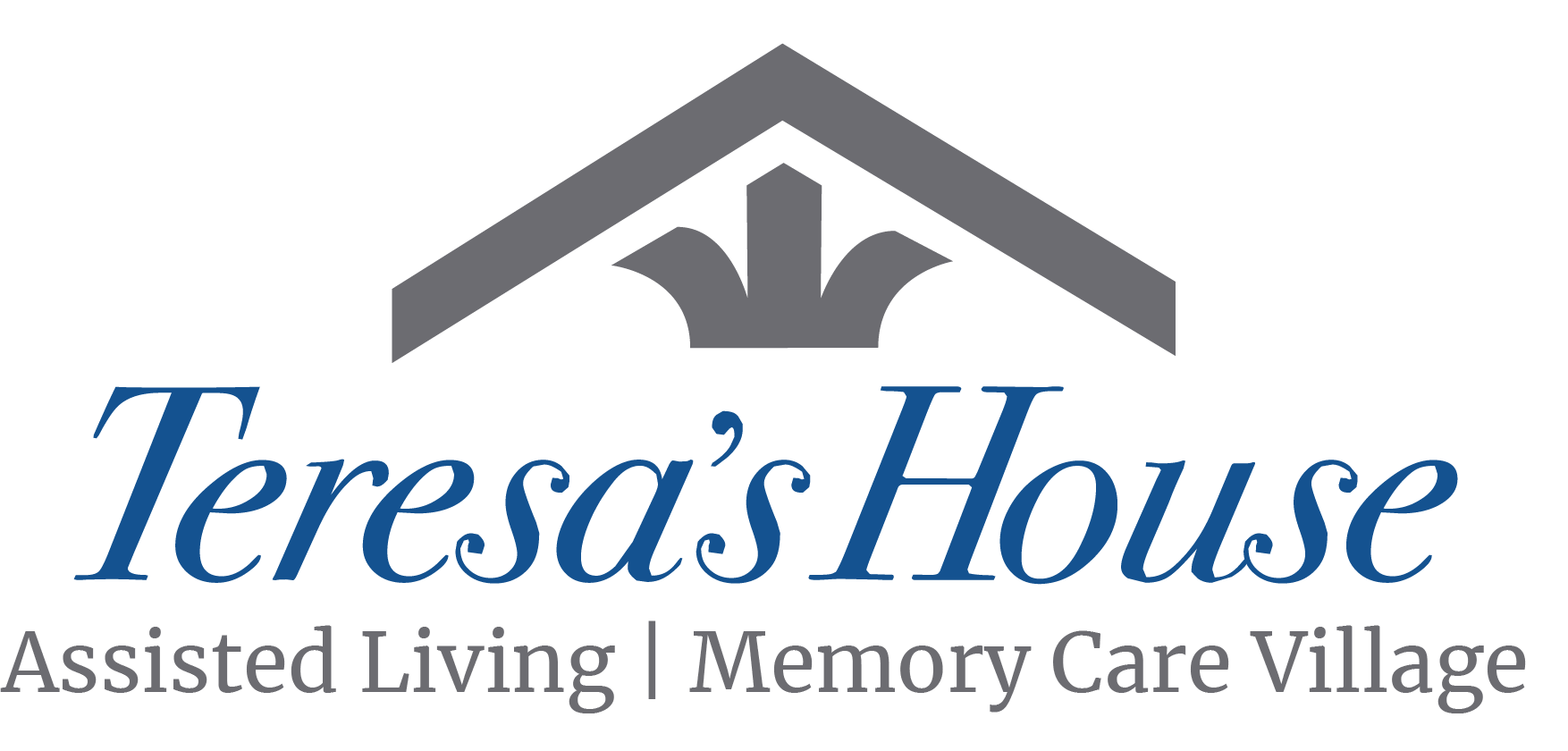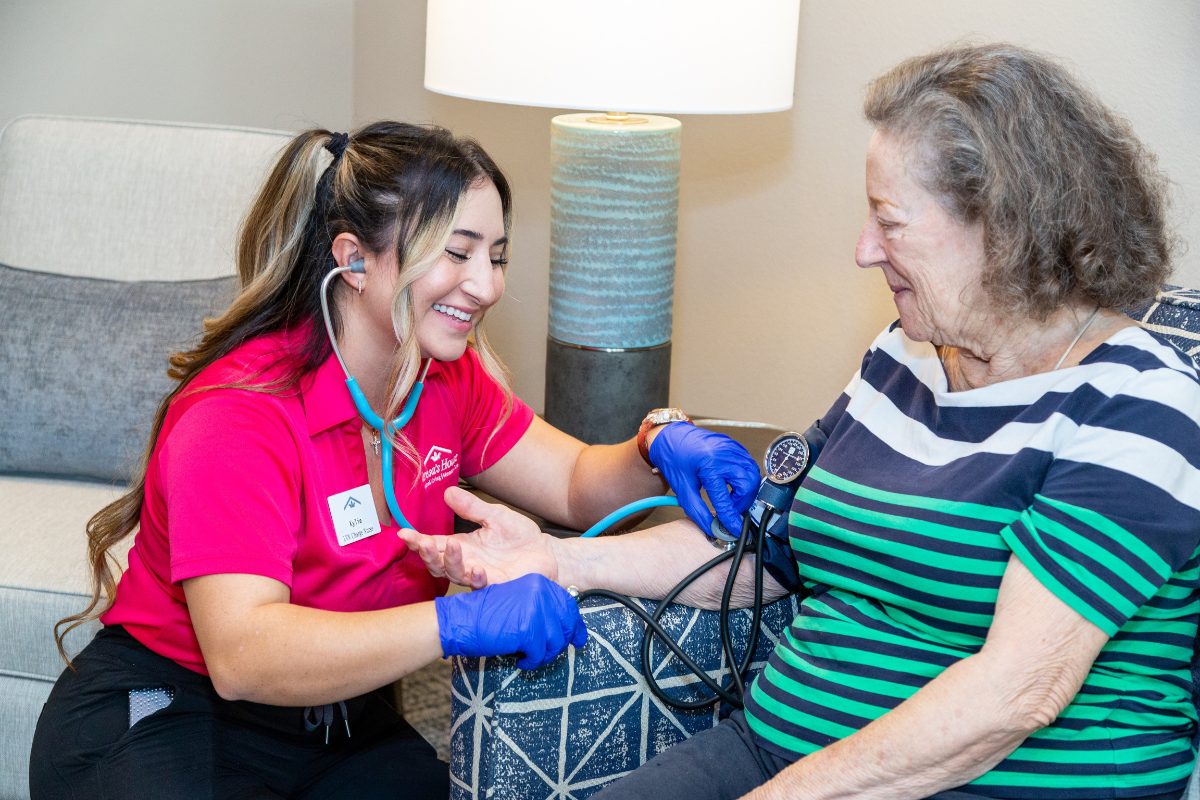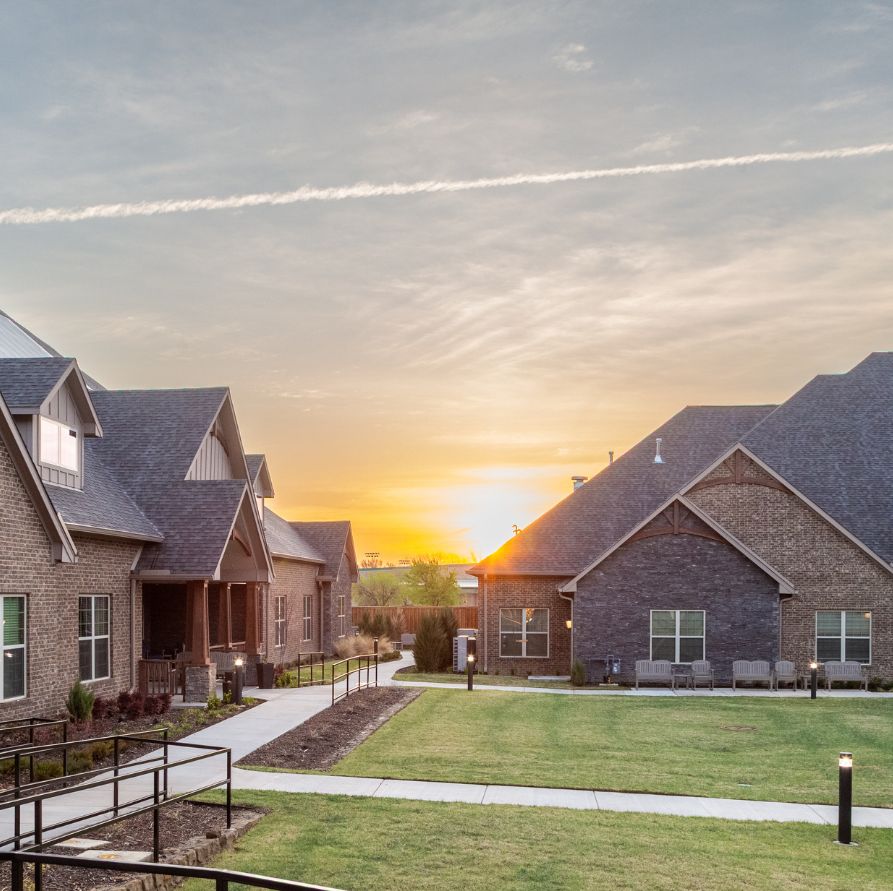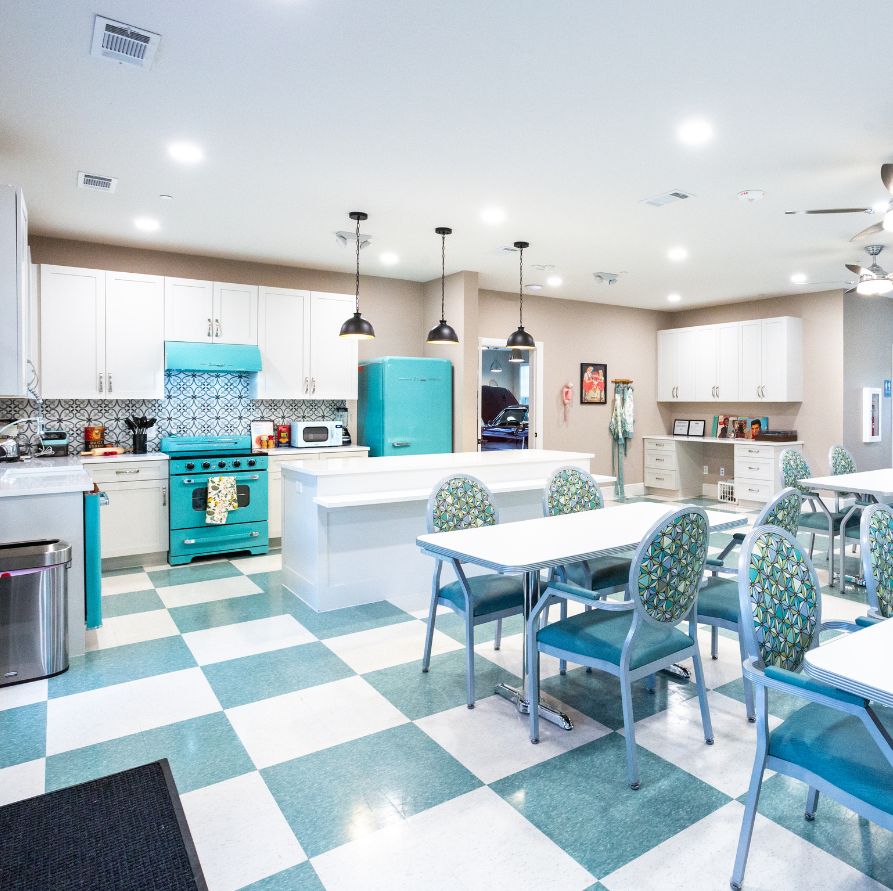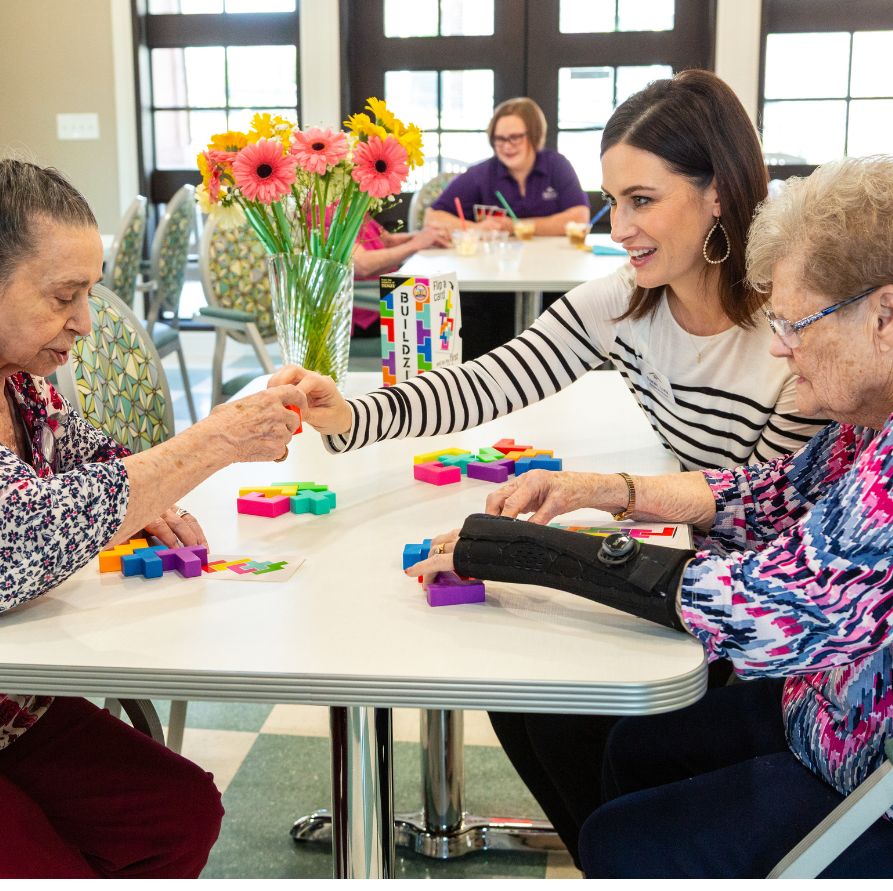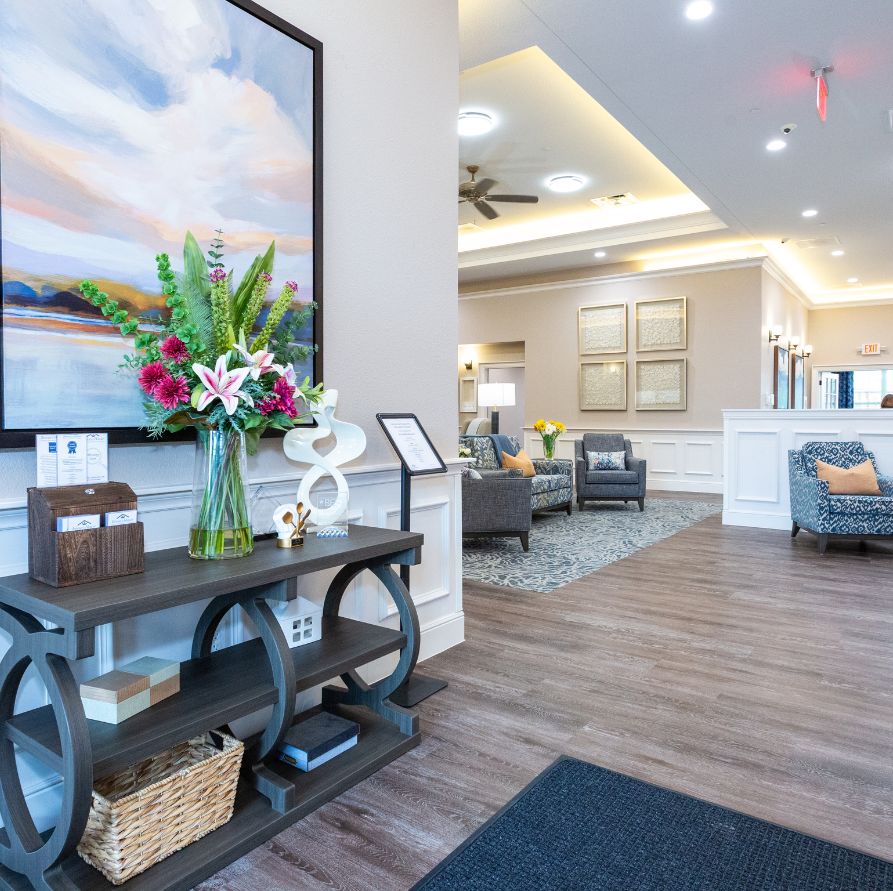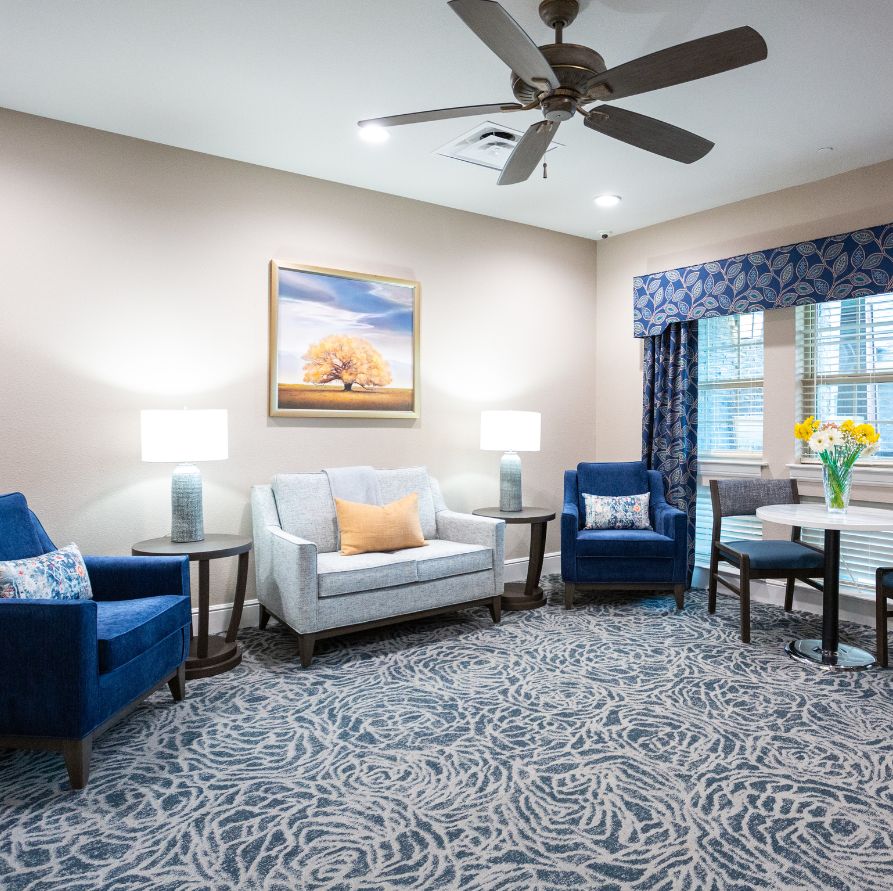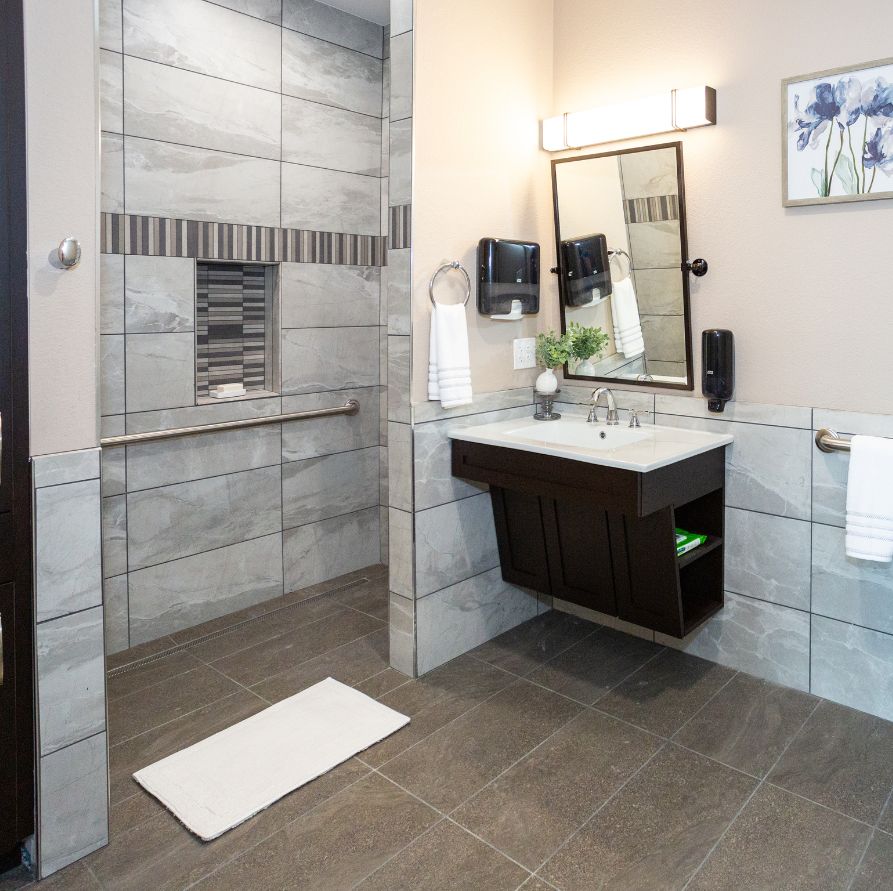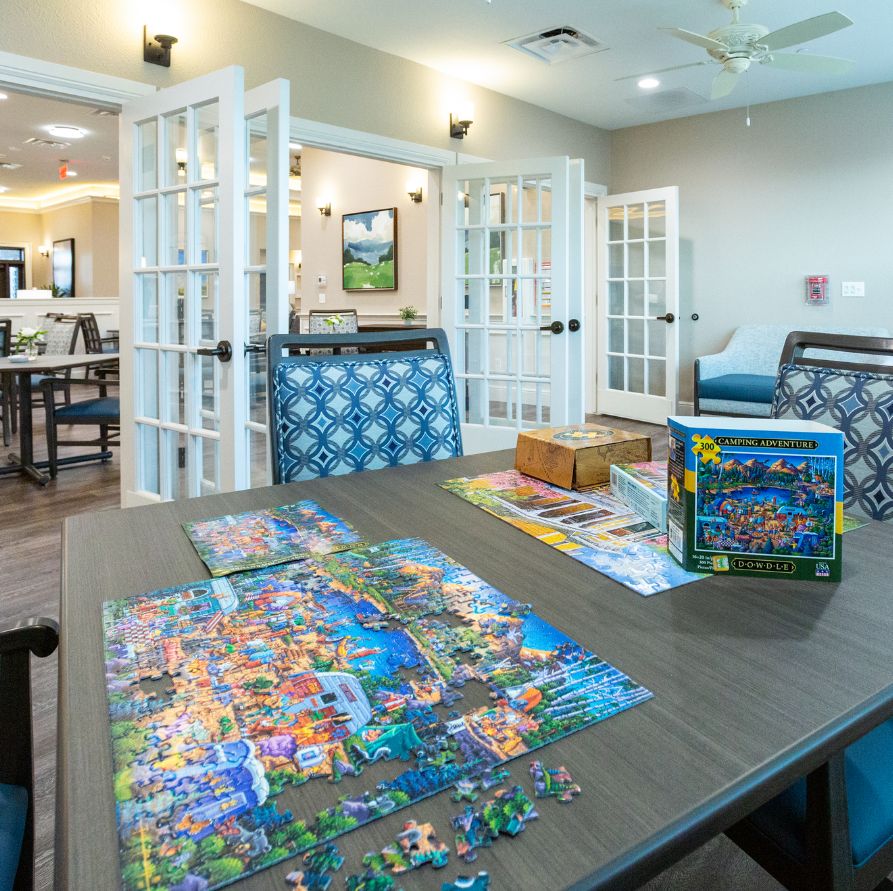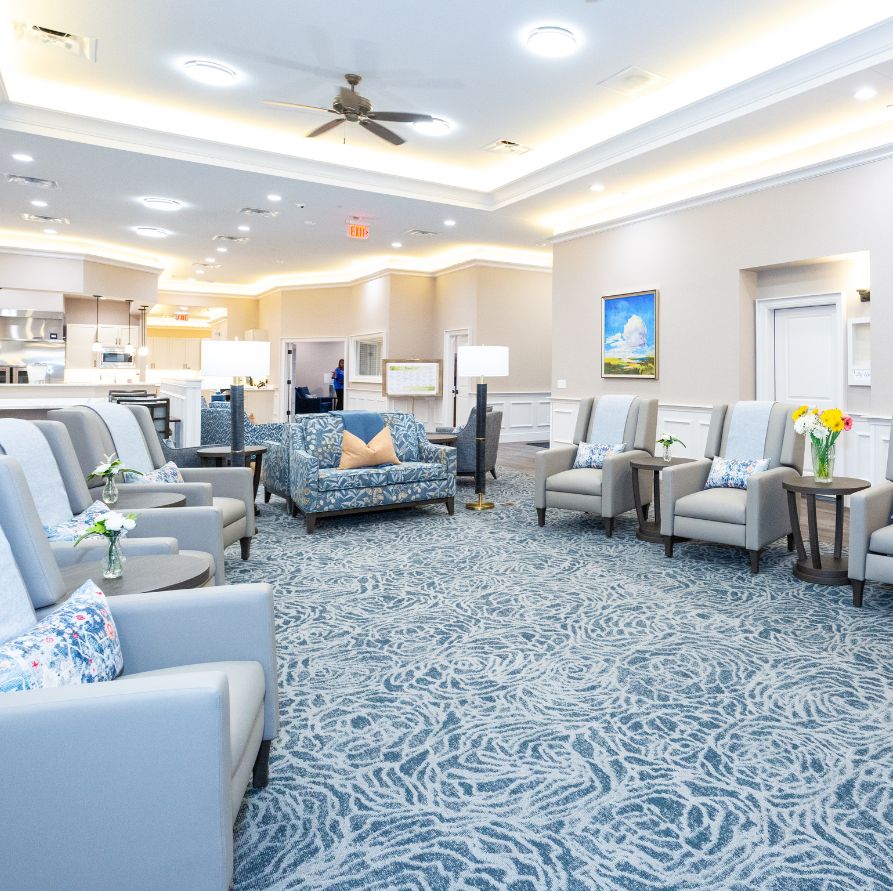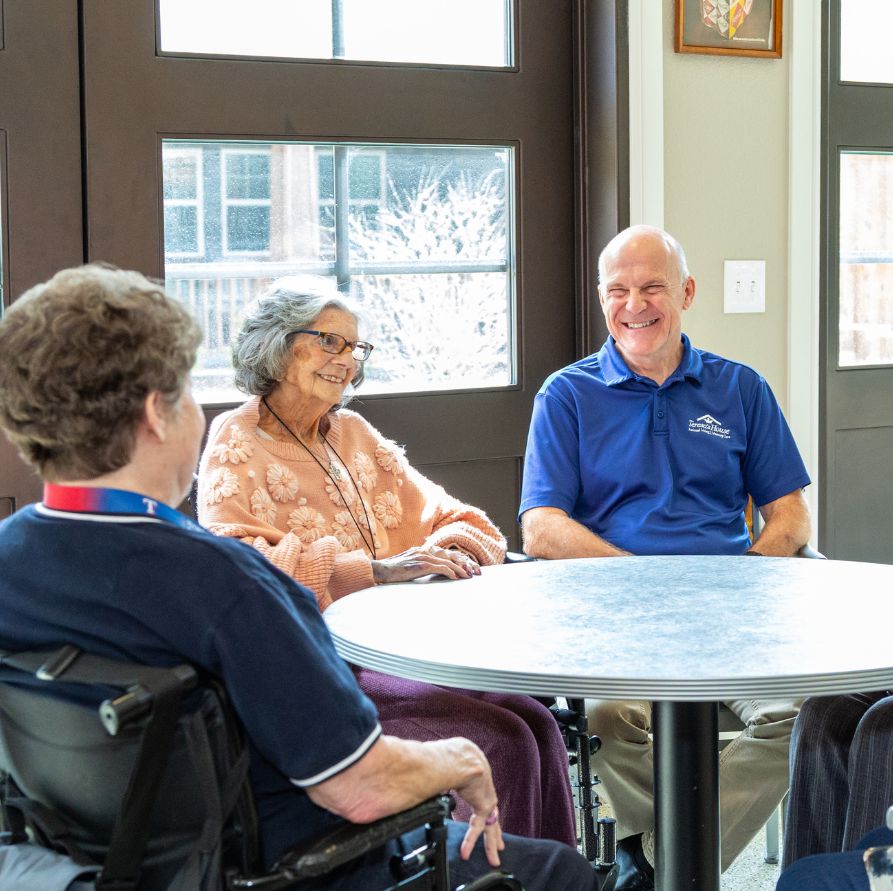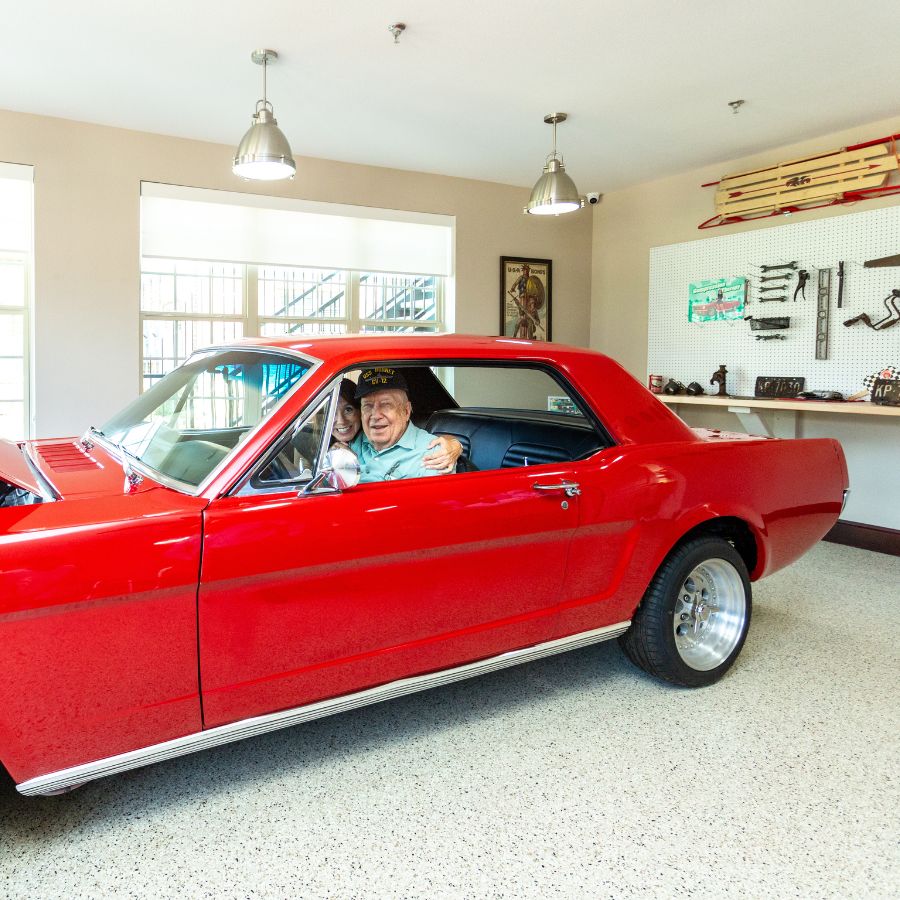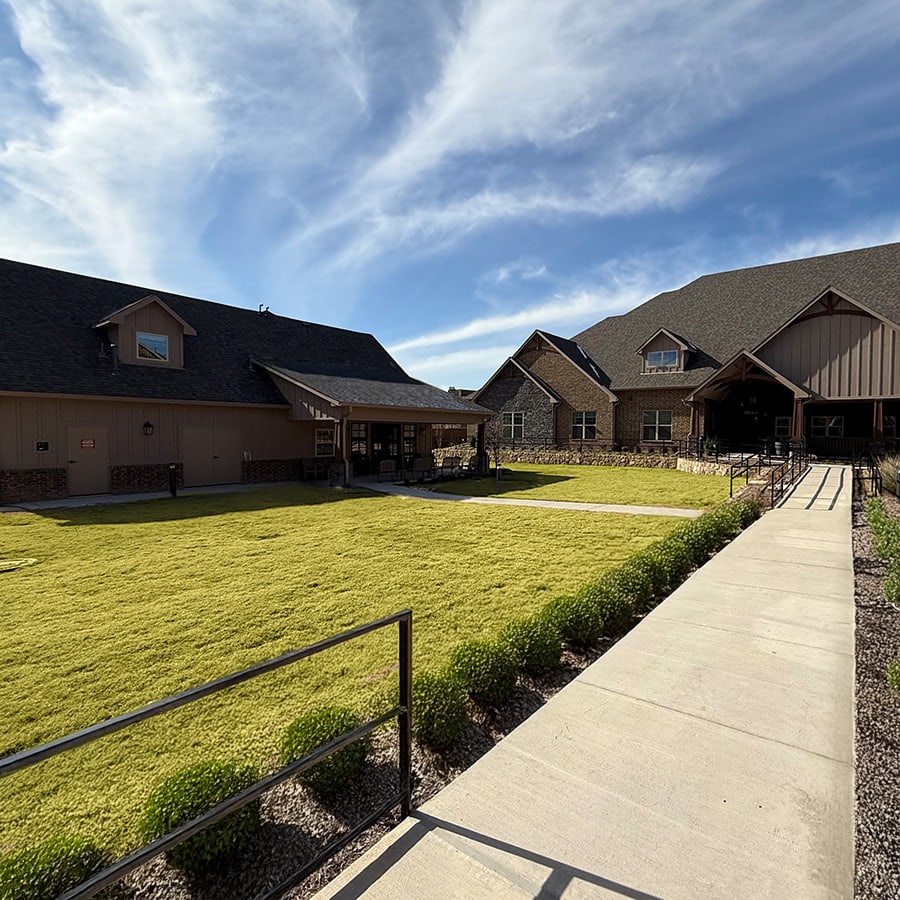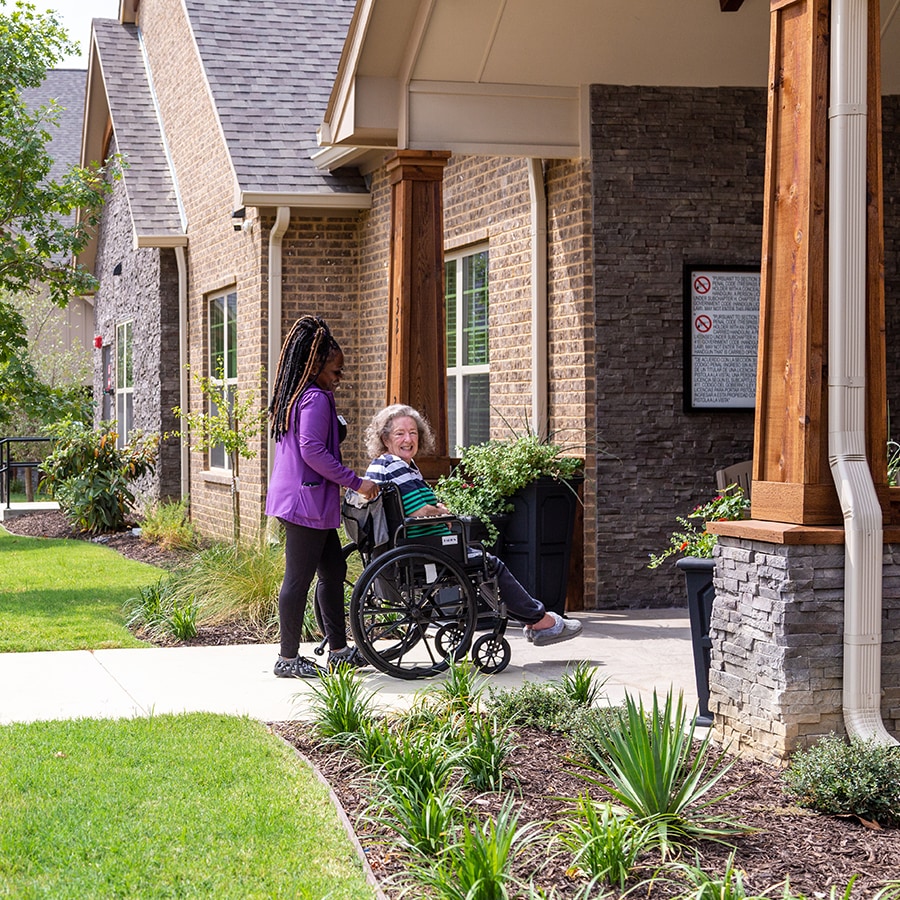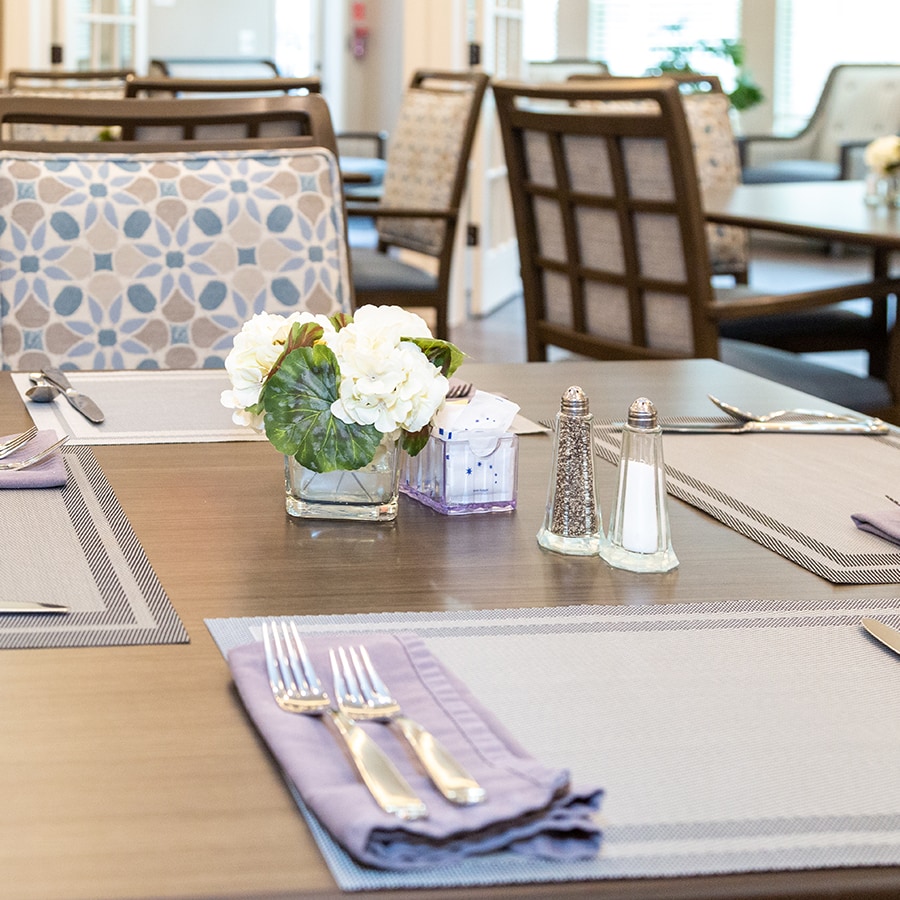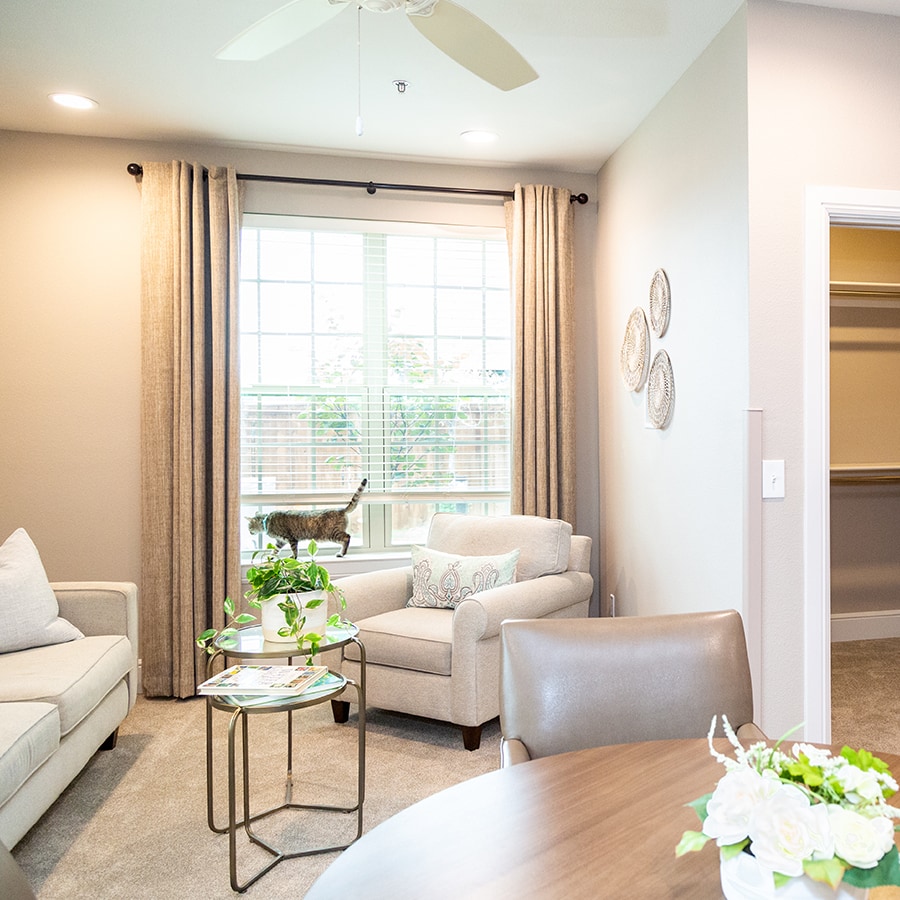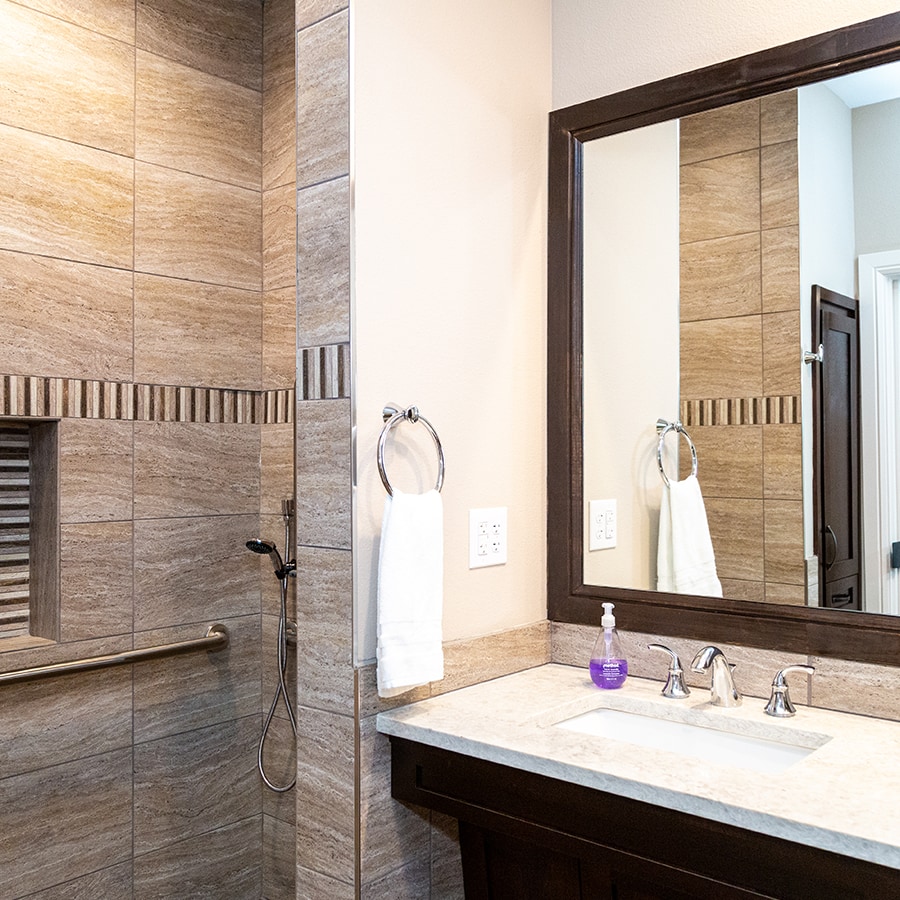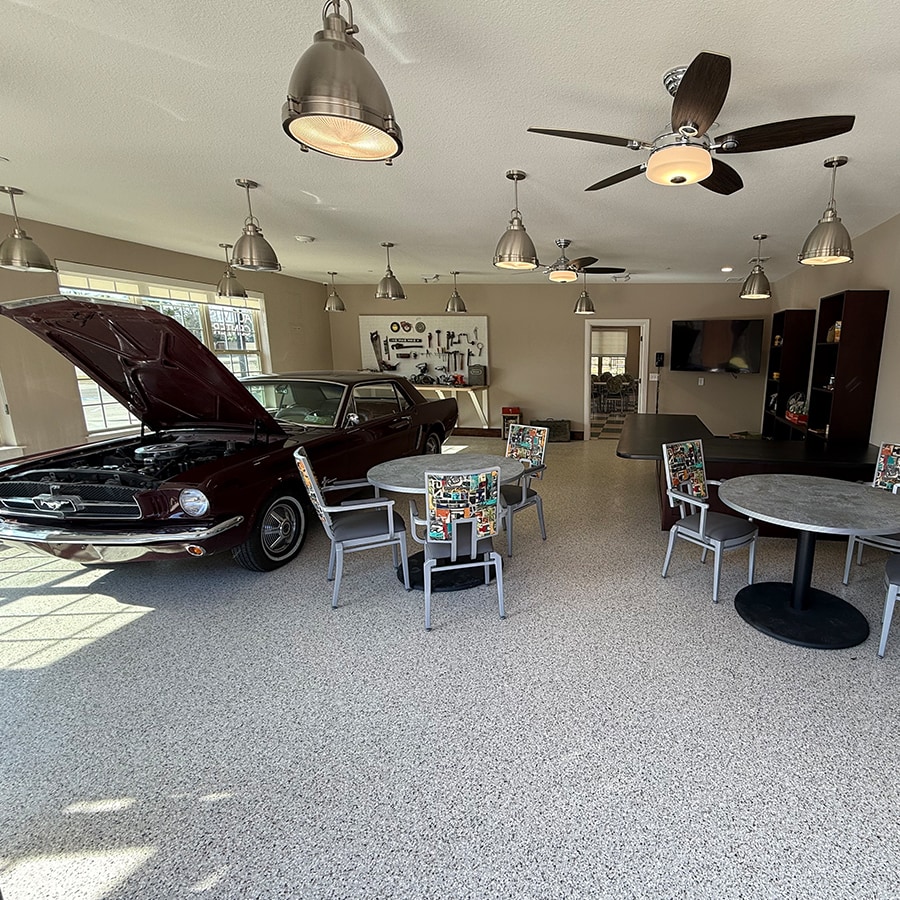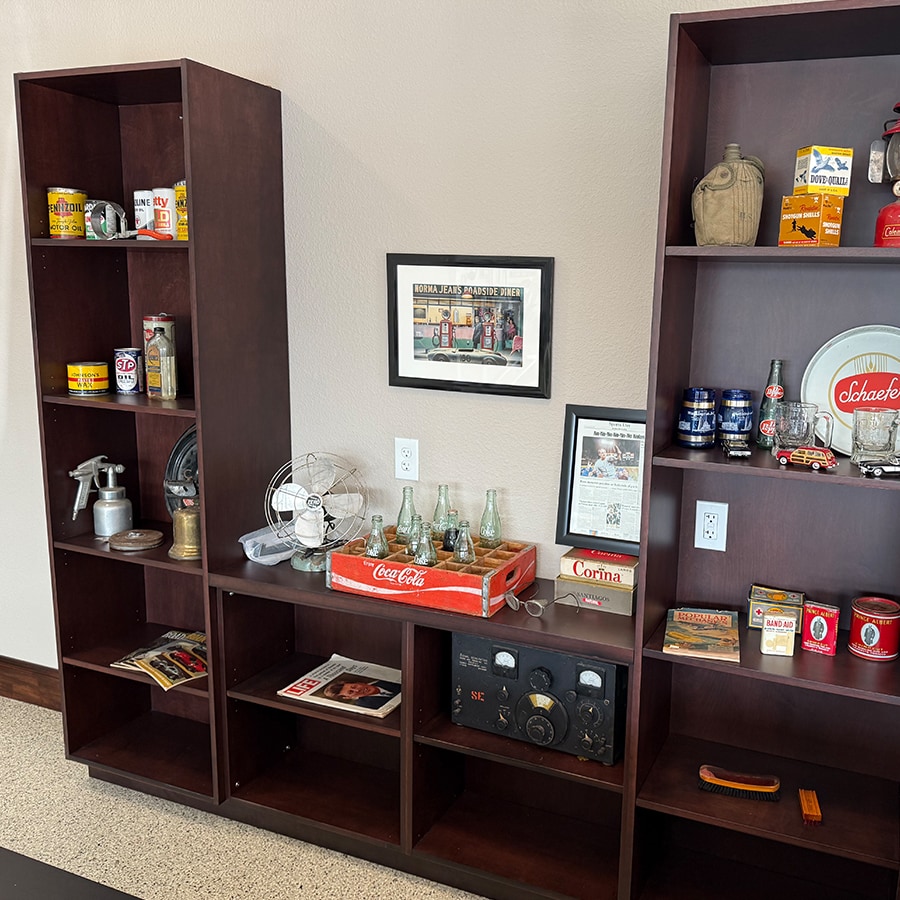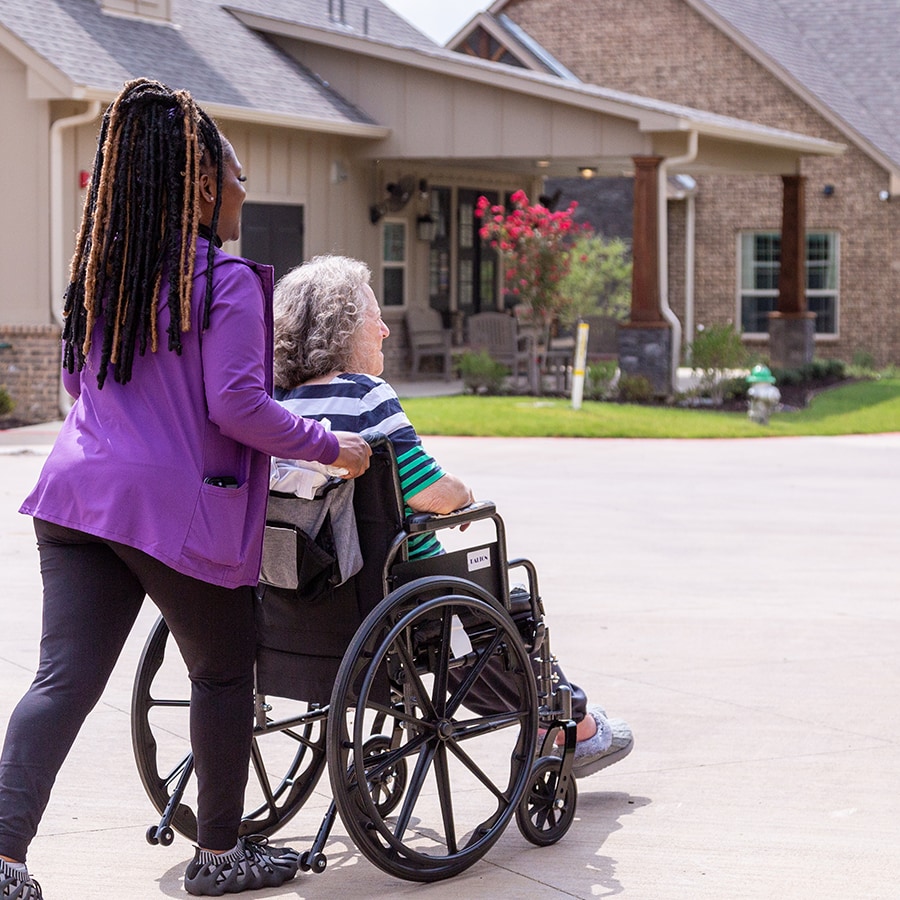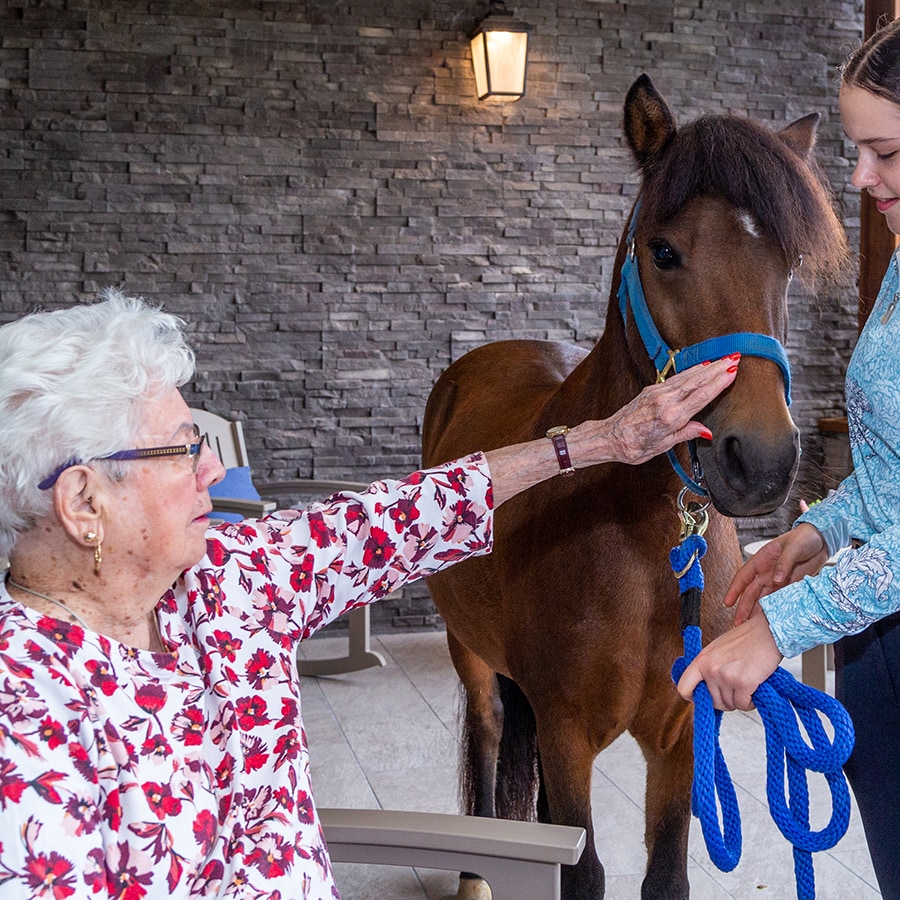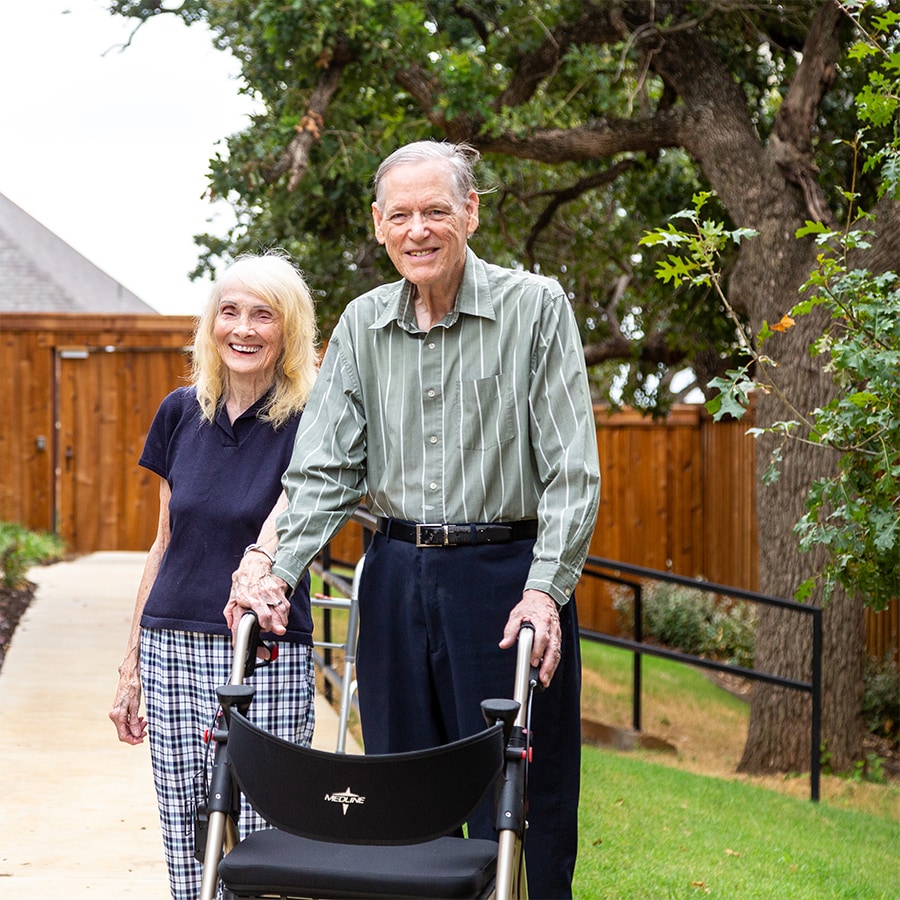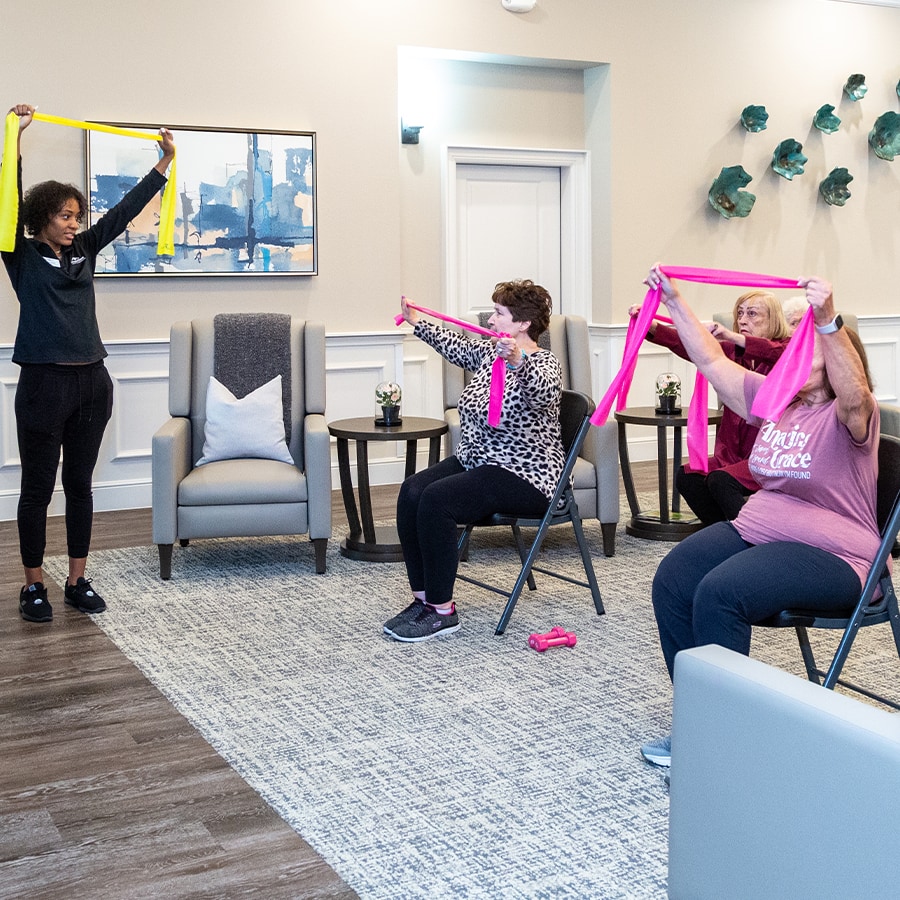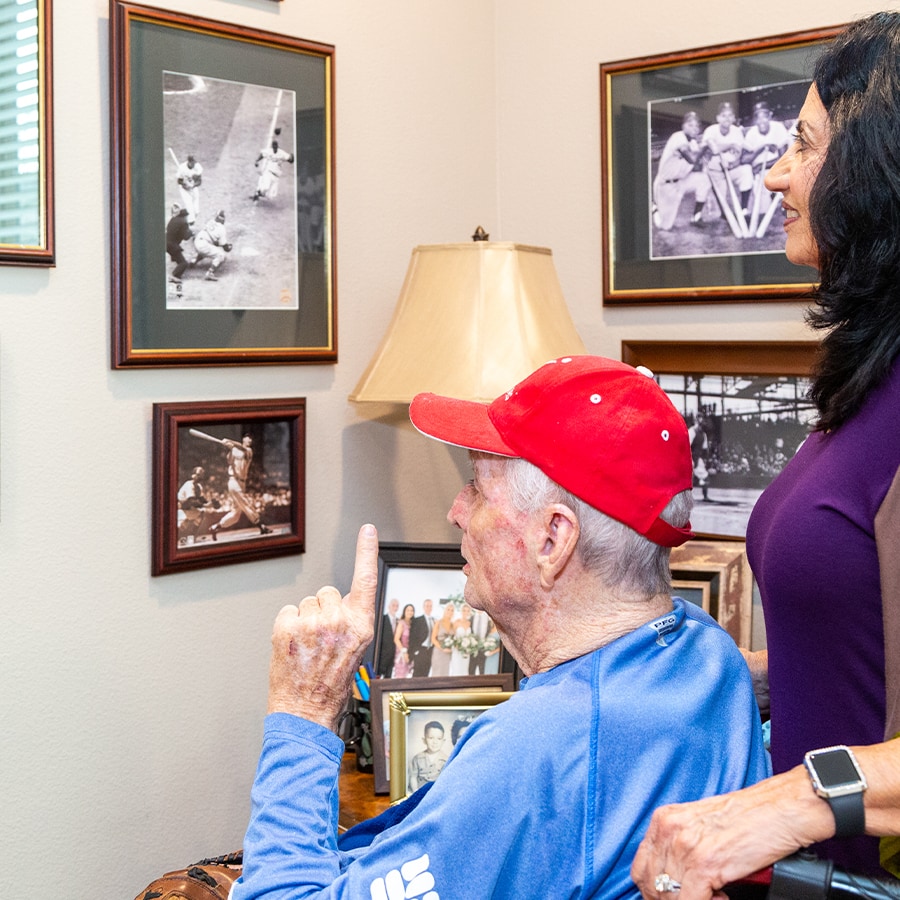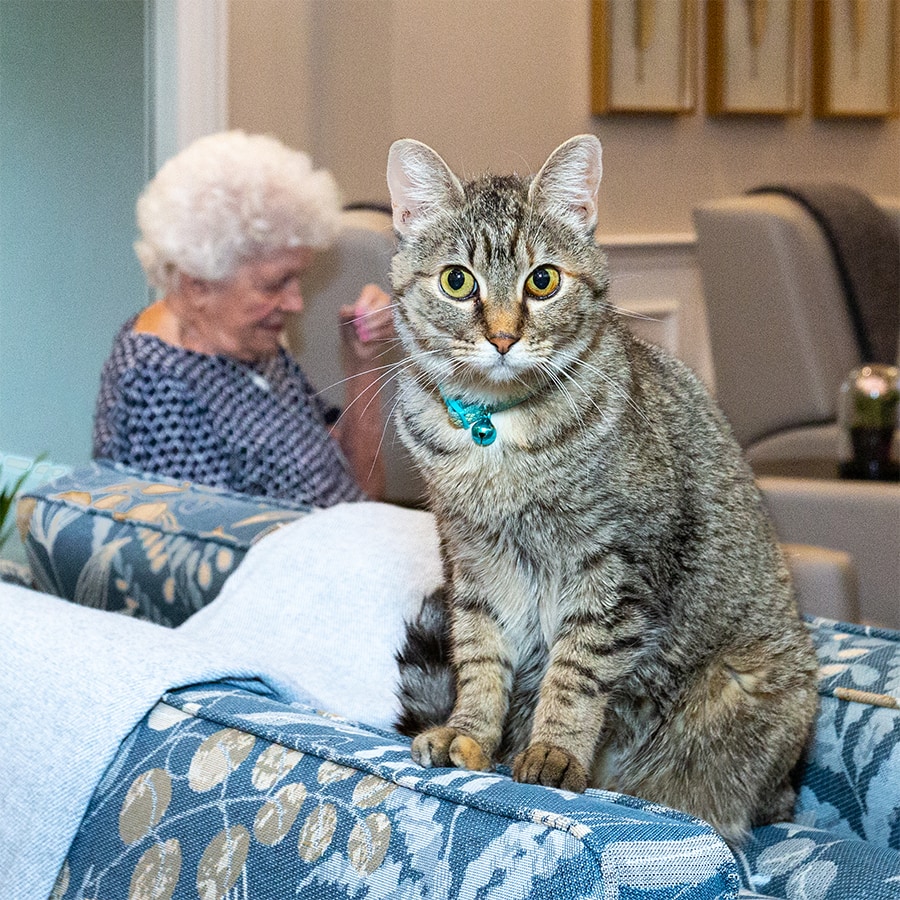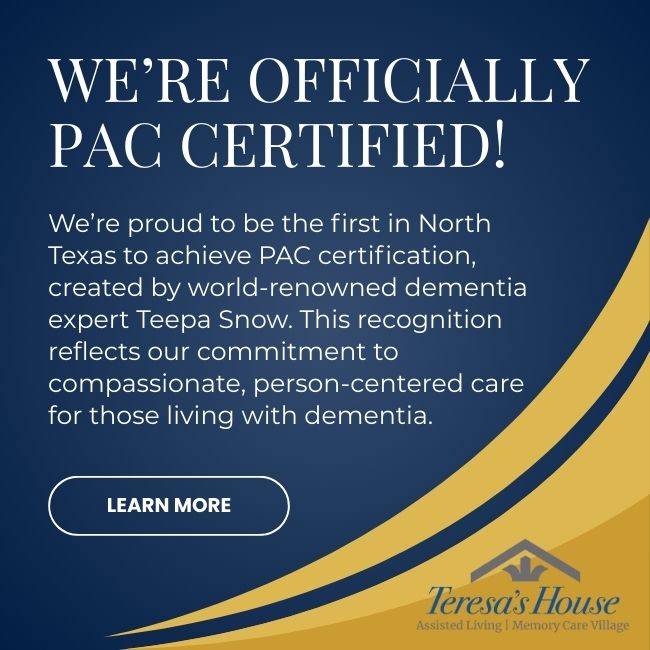Caring for a parent or loved one with Alzheimer’s Disease or dementia at home is a gift of love, but it is also a challenge. As much love and concern as we have for our family members, 24/7 care is difficult for the caregiver(s), affecting mental and physical health, careers, and relationships.
Eventually, it becomes apparent that caring for the loved one in the family home is no longer workable. This is when it’s time to consider a facility that provides security, care, and support for those with memory issues. An effective memory care facility is staffed with medical professionals trained to support and provide enrichment for those experiencing advanced cognitive decline. Even so, deciding to trust your loved one’s care to others can be difficult.
The Benefits of Home Care
When memory issues first appear, many families decide to care for a loved one at home. It keeps the parent in surroundings they know, and familiar activities and routines help those with memory loss feel comforted and calm.
Personalized Care
Many families feel that caring for a family member with memory issues at home is the best way to give personalized, quality care. You know their care level is high when you are the one providing it. You know their preferences, likes, and dislikes and can adjust accordingly with tailored schedules, meals, and other daily needs. You can also increase your level of support as cognition continues to worsen.
Familiarity
Familiar routines are comforting to memory care residents. They also reduce challenging behaviors such as agitation, aggression, and restlessness. Reducing these behaviors can support caregivers by reducing stress, which enables them to provide better care.
Maintaining Independence
Keeping a person with memory impairment at home can help your loved one retain a sense of independence for as long as possible. Familiar surroundings help because the person keeps a greater sense of control. You can remind them of favored hobbies, music, foods, or memories. You can also engage them in activities they struggle with alone but can do with your help.
Money Savings
Many families decide on home care because of the cost of a memory care facility. Finances are a valid concern and may make home care a workable solution at first. However, as those with dementia continue to decline, care becomes more time-consuming and may take a costly health toll on family members.
The Challenges of Alzheimer’s Care at Home
Alzheimer’s and Dementia are progressive diseases, so a solution that is workable at first may become unmanageable as your loved one’s memory impairment becomes more severe.
Family Burden
There is another side to home care that many families confront to a greater degree as dementia or Alzheimer’s disease progresses. While family members begin the memory journey with open hearts and the very best intentions, a decline in cognition requires a much higher time commitment as time goes on.
Careers, family, finances, and outside relationships can suffer as caring for a loved one requires more time and energy. Caregivers may have to reduce work hours or leave the workforce altogether which reduces the family’s financial resources.
Access to Specialized Care or Therapy
When caring for a loved one at home, you are responsible for locating, funding, and transporting them to any needed auxiliary care or therapy.
Safety Concerns
There are many safety concerns for those with dementia when they live in the home. Each room, including the bathroom, kitchen, garage, and utility room, contains hazards like sharp implements, chemicals, slippery surfaces, and more.
Wandering is a hazard experienced by people with dementia. Six out of ten will wander at least once. Those with Alzheimer’s or dementia may no longer be able to recognize familiar places. If the home is not secure, they can wander and lose their way, confused about where they are.
Isolation
Social connections are essential for cognitive health. A study of 69 residents in six different dementia facilities found that residents who participated in social events experienced improved mood and reduced disruptive behaviors. While you can provide some engagement, a person with dementia living at home has limited social interactions.
Caregiver Burnout
Faced with around-the-clock care, caregivers who start with the best intentions experience burnout. This can affect the caregivers mental, behavioral, and physical health.
How Do You Know It Is Time for a Transition?
Safety issues arise such as leaving the stove or oven on, wandering, or falls
Personal grooming and home care tasks begin to suffer
Healthcare lapses like medication irregularities, missed doctor appointments, or skipping meals
Aggressive behavior that might put you or family members at risk
Caregiver burnout
Essential services turned off for non-payment
Choosing a Memory Care Facility
What Is Memory Care?
As mentioned previously, dementia and Alzheimer’s are progressive diseases, so many memory care homes have graduated services that support your loved one through the various phases of the condition. Care choices can start with assisted living, graduate to memory care, and later to enhanced care. It is ideal for your loved one to have as much consistency and structure as possible for comfort, and our community with graduated care options makes the progression smoother for everyone.
What Does a Memory Care Home Offer?
Personalized, Professional Care
Dementia or Alzheimer’s disease can be labels. They do not define the person who has lived a long and complex life. At a quality memory care community, professional, trained caregivers build relationships with your loved one and personalize their care and activities. If your loved one has always enjoyed gardening, crafts, or interacting with children, the care team provides ways to continue those activities in a supportive environment. Our residents are people not patients! They LIVE and don’t just exist!
Improved Quality of Life
When you consider how to care for your loved one, consider the support and improved quality of life a memory care community can offer:
- The social stimulation of interacting with others
- The safety of being in a secure space
- Engaging pursuits that keep your loved one active
- Nutritious meals with variety and choice
- Health care professionals trained to support individuals with memory challenges
- Medication support
- 24/7 care and attention
- Specialized therapies in one location
- Peace of mind for their loved ones.
Making the Decision on a Facility
The decision to relocate a loved one from their home or yours is complex and needs thoughtful consideration. Those with memory issues find comfort in familiar surroundings, and frequent moves can be disruptive. It’s a good idea to find a place that offers a range of services so your loved one may continue to receive appropriate care there as their condition progresses. Take time to carefully research different facilities, including announced and unannounced visits.
Talk with family members and seek professional guidance. Here are a few resources that might help:
- Alzheimer’s Association
- Alzheimer’s Foundation of America
- Dementia Society of America
- National Institute on Aging
Award-Winning Senior Care
Teresa’s House, located in McKinney and Argyle, Texas, is a luxury assisted living and memory care facility created inside lovely houses. Beautiful, spacious living and shared spaces, meals prepared in an open family kitchen, abundant natural light, and plenty of outdoor spaces for supervised exploration make it home.
More than a care facility, Teresa’s House is a therapeutic community carefully planned to be like home, only better: safe and comfortable and with cues that help memory-impaired individuals maintain dignity. Our residents receive concierge-level care that includes research-based programming that is attuned to their specific needs, from assisted living to memory care to enhanced care.
Holistic Wellness for Memory Care Residents
Being active and engaged is essential to our overall well-being and every resident has the opportunity to take part in meaningful activities. Health and wellness are essential to our community and each of the seven dimensions of wellness are incorporated into the design of the Teresa’s House lifestyle.
- Social
- Emotional
- Physical
- Intellectual
- Environmental
- Spiritual
- Occupational
Staffed in a 1:5 ratio of caregivers to residents, our community carefully selects experienced senior and memory care professionals who are committed to building friendships and connections with those in our community and their families. Social opportunities and options for creative engagement allow residents to live their best lives. As your loved one declines, we can accommodate declining abilities without the disruption of moving to a different facility.
This is why we’ve been rated Best of McKinney for four consecutive years, Best of Denton County in 2023, and Readers’ Choice Best of Living Magazine in 2023. Come and see the outstanding quality of life at Teresa’s House. Email us today or call our McKinney location at 972-737-4366 or the Argyle location at 940-267-2490. We’d love to hear from you!
